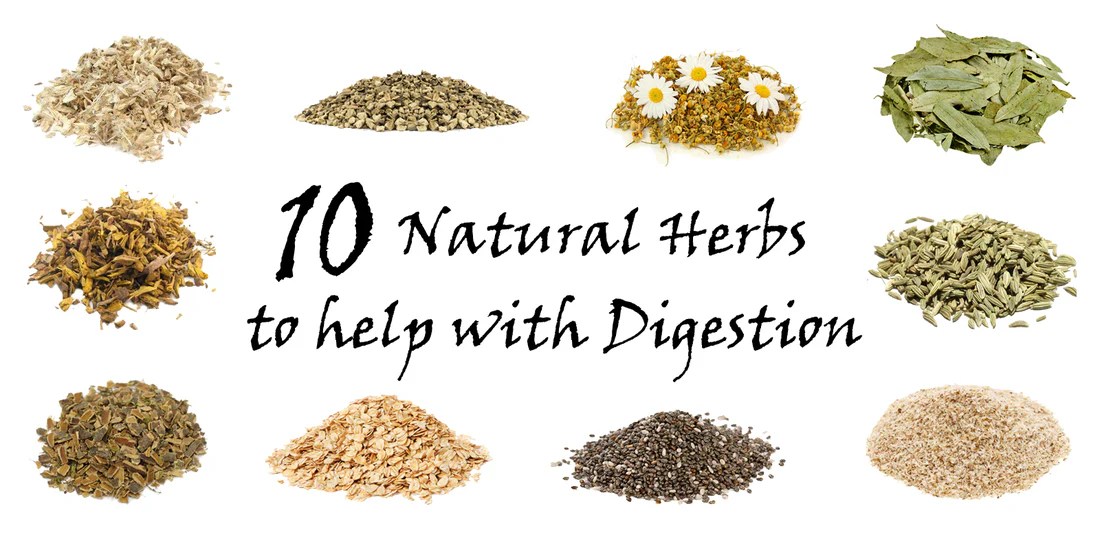With Herbs for improving digestion at the forefront, get ready to explore the world of natural remedies that can revolutionize your digestive health. From soothing common issues to enhancing enzymes and balancing gut flora, this guide will take you on a journey to optimal digestion.
Overview of Digestive Herbs
Using herbs to improve digestion is a natural and holistic approach to promoting gut health. These herbs are known for their ability to aid in digestion, reduce bloating, and alleviate symptoms of indigestion.
Benefits of Digestive Herbs
- Supporting a healthy gut flora
- Reducing inflammation in the digestive tract
- Enhancing nutrient absorption
- Alleviating symptoms of gas and bloating
Common Herbs for Digestion
- Peppermint: Known for its soothing effect on the digestive system and ability to relieve indigestion.
- Ginger: Helps to stimulate digestion, reduce nausea, and ease stomach discomfort.
- Fennel: Aids in digestion, reduces bloating, and helps with symptoms of irritable bowel syndrome (IBS).
- Chamomile: Has anti-inflammatory properties that can help soothe the digestive system and reduce stomach cramps.
- Turmeric: Known for its anti-inflammatory and antioxidant properties, turmeric can help with digestion and gut health.
Herbs for Soothing Digestive Issues: Herbs For Improving Digestion

When it comes to soothing digestive problems like bloating, gas, or indigestion, there are several herbs that can provide relief. These herbs work in various ways to alleviate discomfort and promote better digestion. Here are some examples of herbal remedies that can help calm an upset stomach:
Peppermint
Peppermint is known for its ability to relax the muscles of the digestive tract, which can help ease gas and bloating. It also has a cooling effect that can soothe indigestion and nausea. Peppermint tea or capsules are popular ways to consume this herb for digestive relief.
Ginger
Ginger is another herb that is widely used for digestive issues. It helps to reduce inflammation in the gut and promote healthy digestion. Ginger can be consumed fresh, as a tea, in capsules, or even in culinary dishes to help calm an upset stomach.
Chamomile, Herbs for improving digestion
Chamomile is well-known for its calming properties, which can be beneficial for soothing digestive discomfort. It helps to relax the muscles of the digestive tract and reduce inflammation. Chamomile tea is a popular and gentle way to consume this herb for digestive issues.
Fennel
Fennel seeds are often used as a digestive aid due to their carminative properties, which help to reduce gas and bloating. Fennel can also help stimulate digestion and relieve indigestion. Chewing on fennel seeds or drinking fennel tea can help calm an upset stomach.
Herbs for Enhancing Digestive Enzymes
When it comes to improving digestion, enhancing the production of digestive enzymes plays a crucial role in breaking down food effectively. Digestive enzymes are essential proteins that help in the breakdown of nutrients into smaller molecules that can be easily absorbed by the body.
Herbs That Enhance Digestive Enzyme Production
Several herbs are known for their ability to stimulate the production of digestive enzymes, aiding in better digestion and nutrient absorption.
- Ginger: Known for its anti-inflammatory properties, ginger can help stimulate the production of digestive enzymes and improve overall digestion.
- Peppermint: Peppermint is not only soothing for the digestive tract but also aids in the production of digestive enzymes, promoting better digestion.
- Turmeric: This powerful herb contains curcumin, which can enhance bile production and support the work of digestive enzymes.
- Fennel: Fennel seeds can help relax the digestive tract and stimulate the production of digestive enzymes, easing digestion.
Herbs for Balancing Gut Flora
Having a healthy gut microbiome is crucial for proper digestion as it helps in breaking down food, absorbing nutrients, and supporting overall gut health.
Herbs that promote a balanced gut flora
- Probiotics: Probiotic-rich herbs like fermented foods, yogurt, and kefir help introduce good bacteria into the gut, promoting a healthy balance of microorganisms.
- Garlic: Garlic is known for its antimicrobial properties that can help eliminate harmful bacteria in the gut while supporting the growth of beneficial bacteria.
- Ginger: Ginger aids digestion and helps reduce inflammation in the gut, creating an environment that is conducive to a balanced gut flora.
Impact of these herbs on gut health and digestion
These herbs play a significant role in maintaining a balanced gut flora by promoting the growth of beneficial bacteria and reducing the presence of harmful microbes. This balance is essential for optimal digestion, nutrient absorption, and overall gut health. Incorporating these herbs into your diet can help support a healthy gut microbiome and improve your digestive function.